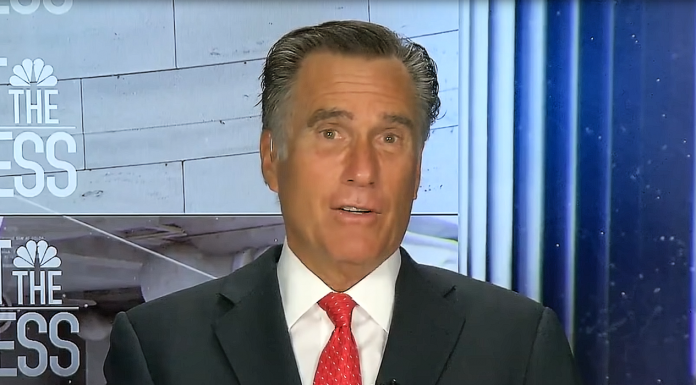Sen. Mitt Romney, R-Utah, became the first Republican senator on Monday to voice support for the Democrats’ push to create a Jan. 6 investigative commission.
The House passed a bill last week to create the commission, which would investigate the mostly peaceful pro-Trump uprising at the US Capitol. However, it needs the support of 10 Republicans to pass the Senate.
Most Senate Republicans have already shot down the idea, including Senate Minority Leader Mitch McConnell, R-Ky. But Romney said he plans to vote for it anyways.
“I would support the bill,” Romney said when asked what he would do if the House bill was brought to the Senate floor for debate.
Romney was one of seven GOP senators to side with Democrats in voting to convict former president Donald Trump of inciting the violence.
Two of the others, Sens. Bill Cassidy, R-La., and Susan Collins, R-Maine, have said they also are inclined to support the commission, but neither has committed.
Collins said she would like to discuss potential amendments to the House bill with Democrats before voting for it.
McConnell—who has openly feuded with Trump since denouncing him in the aftermath of the impeachment vote—argued the bill is a bad-faith attempt by Democrats to pin violence on the Republican Party.
“After careful consideration, I’ve made the decision to oppose the House Democrats’ slanted and unbalanced proposal for another commission to study the events of Jan. 6,” McConnell said last week.
He noted that there already were abundant ongoing investigations playing out through the Justice Department’s “shock and awe” inquisition. Those, too, appear to be largely partisan in their scope.
“Federal law enforcement have made at least 445 arrests and counting relating to crimes committed that day. … Law enforcement investigations are ongoing,” McConnell said.
Moreover, he added, several committee panels in the Democrat-led Senate already had launched their own inquiries into the matter.
“Bipartisan investigations are also underway and have been for months at the committee level here in the Senate,” McConnell said. “So there is, has been and there will continue to be no shortage—no shortage—of robust investigations by two separate branches of the federal government.”
McConnell questioned what “yet another commission” motivated by political purposes could accomplish.
“The facts have come out and they will continue to come out,” McConnell continued. “What is clear is that House Democrats have handled this proposal in partisan bad faith going right back to the beginning.”

